- Rent, Lease, or Purchase
- |
May 23, 2021
Start Your Own Shipping Container Farm
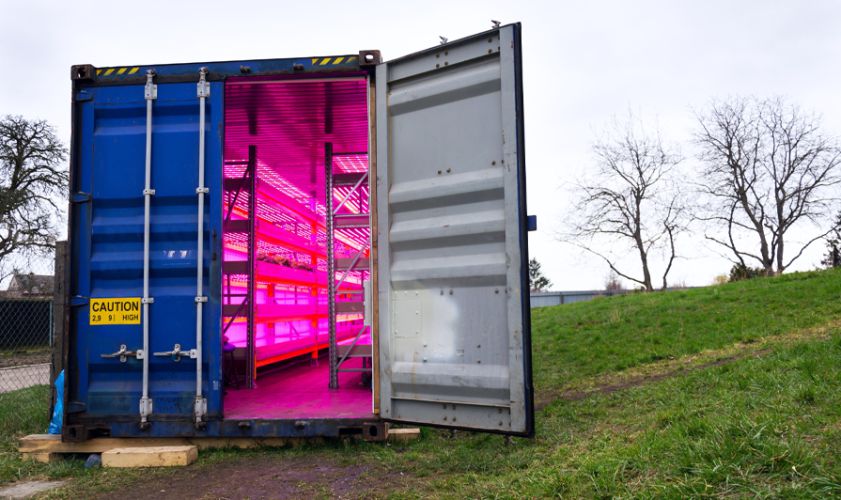
Shipping container farms have received some significant buzz over the past five to ten years. These fully contained structures allow year-round growth of fresh fruit and vegetables regardless of the environment outside. This has provided an exciting new way to deliver fresh produce to urban communities around the world.
That kind of innovation has led to some significant funding. In 2017, Square Roots, an indoor, urban farming community, raised $5.4 million from a group led by the Collaborative Fund. A year later, the French urban farming collective Agricool raised $28 million from an investor syndicate that includes Danone Ventures.
Check out the post below to learn more about shipping container farms and what they mean for your business.
What is a Shipping Container Farm?
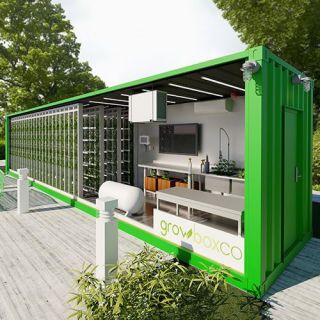
Shipping container farms are part of a growing trend known as controlled environment agriculture. The practice relies on hydroponic systems to grow plants within a controlled environment and enhance horticultural practices.
Freight Farms, the world's leading manufacturer of container farming technology, uses containers that previously shipped meat products, so they're already insulated against heat and cold. Each container is outfitted with LED lights, growing racks, and irrigation systems.
Based in the United States, the company has also developed a complete software platform that allows hydroponic growers to remotely control farm components, automate tasks, and analyze growing data related to their operation.
The software can even connect to a mobile app or any desktop computer, so that farmers can remotely monitor sensor data, such as nutrient levels, pH, climate conditions, and CO2. Users receive a push notification if the technology detects anything out of the ordinary.
Benefits of Container Farming
With so much money pouring into the container farm industry, we should expect some profound benefits from the business model. Check out the list below to learn more about what industry insiders are pitching.
Shipping Containers are Easy to Transport
Just as the name implies, these units are easy to move from place to place. So long as you outfit the container with the necessary additions, you can have a farm up and running from anywhere you want. This means people are free to farm where it's cheap and convenient. This is welcome news to farmers impacted by urban expansion and the loss of farmland.
It's a Scalable Model
Remember, shipping containers are stackable, so you can easily expand your existing business instead of starting from scratch at a new location.
They Can Operate All Year Long
Because container farms are entirely enclosed, you don't have to worry about inclement weather or other elements that may harm your crop. This also affords farmers the luxury of being able to harvest all year long.
The closed environment allows them to produce a tremendous amount of product in a short period of time. Some farmers say they are able to harvest upwards of 6,000 plants per week -- a far higher number than more conventional locations are able to churn out.
They Are Readily Available
Shipping containers are everywhere. At the time of this writing, there are roughly 11 million shipping containers just sitting in warehouses around the world.
They Produce Better Product
Situating farmers closer to consumers means a significant reduction in transportation time. This allows products to be grown and picked for optimal freshness, allowing them to retain more of their color and nutrients. Farmers also have better control over pests. Additionally, location-conscious buyers will be happy to hear that container farms make it easy to trace their food and know exactly where it comes from.
They Help Conserve Water
Enclosed shipping containers allow farmers to control the amount of water entering and leaving the system and prevent excess water from building up in adjacent areas. Even in instances where there is overspill, farmers can recycle that water as needed, dramatically reducing their water use.
Drawbacks to Shipping Container Farming
While container farms offer numerous benefits, there are a few drawbacks you should be aware of. Check out these important considerations before you invest:
High Operating Costs
While a Conex box may be relatively inexpensive on its own, it is not designed for food production. To transform your box into a fully functional container farm, you must invest in certain additions. Hydroponics requires specific technologies, including solar panels, air temperature controls, led lighting, and more.
Environmental Control Can Be Hard to Maintain
Container farms allow owners to control the different processes necessary to produce a healthy crop. These systems, however, can be complicated to manage. Conditions can quickly get out of control, allowing heat and humidity to accumulate and pests to thrive.
Used Containers Can Be Pretty Banged Up
Used containers are often celebrated for their affordable price, but it's important to keep the reasons behind that low price tag in mind. These units have already spent time exposed to the elements outside. They may have rust, dents, and other kinds of damage that compromise the structural integrity of your container farm.
Work With Mobile Modular Portable Storage
Mobile Modular Portable Storage rents and sells commercial and construction-based portable storage containers and high-security offices. Headquartered in Livermore, California, Mobile Modular Portable Storage is one of the largest suppliers of portable units in North America.
Get in touch with one of our representatives to learn more about how our solutions can be used for container farms. Fill out this form to request a quote. You can also reach us by phone by calling 866-459-7600. For more information, be sure to check out our blog.
Frequently Asked Questions
How much does a container farm cost?
On its own, a shipping container is relatively affordable. However, there are a number of expenses to keep in mind when it comes to container farms. You'll need to invest in air conditioning and sprinkler systems as well as LEDs to keep your plants alive. Annual operating costs may range between $8,000 and $16,500.
Are container farms profitable?
Container farming methods are profitable. This is primarily due to the fact that container farm companies can grow plants twice as fast as traditional farms while using 97 percent less water. They can also be operated from anywhere in the world, regardless of the weather. The system remains one of the most promising business models of today.
What can you grow in shipping containers?
Container farms can be used for food production, growing things like pure greens, herbs, produce, and other kinds of crops.
Related Blogs
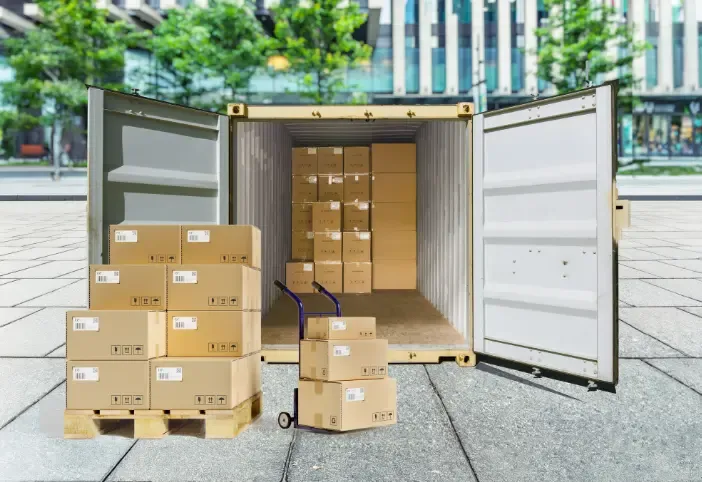
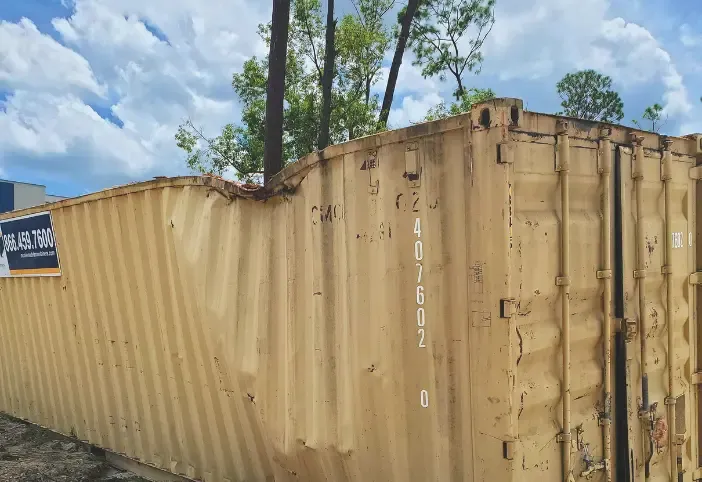
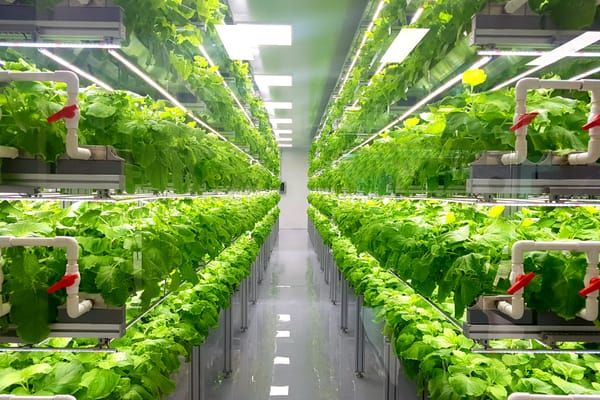
Subscribe to Our Blog
Enter your email address to subscribe to the blog and receive the notification of new posts by email.
Thank You for Subscribing to Our Blog!
Stay tuned for upcoming emails with valuable content that we hope will enhance your experience with our brand.
Both Pardot and mg360 form submissions failed.
